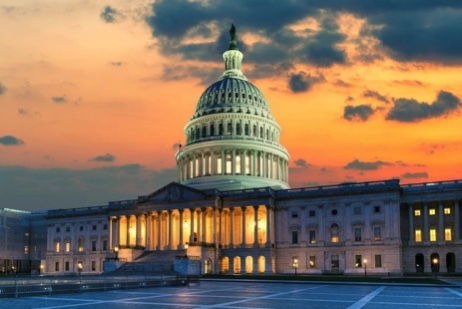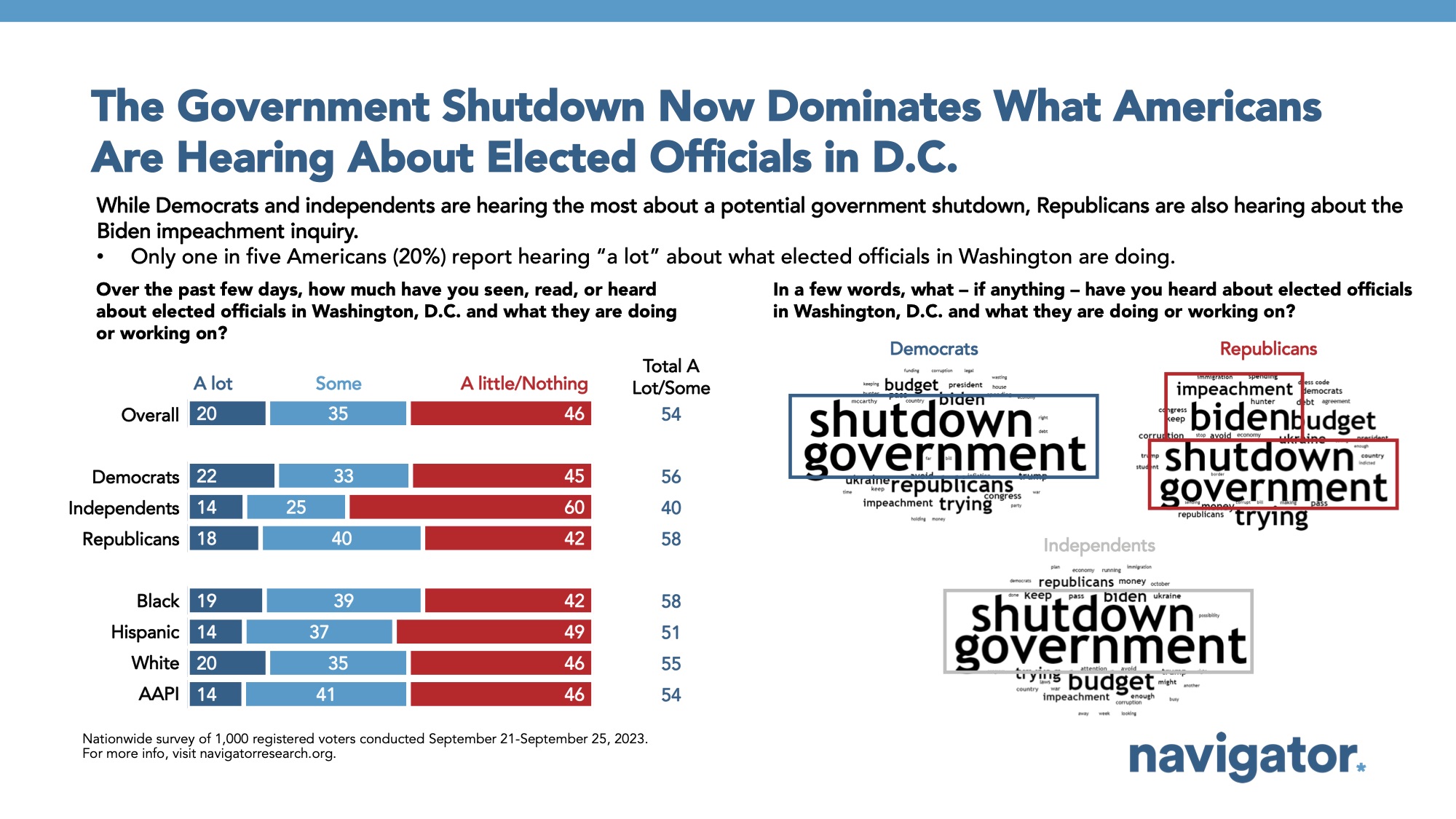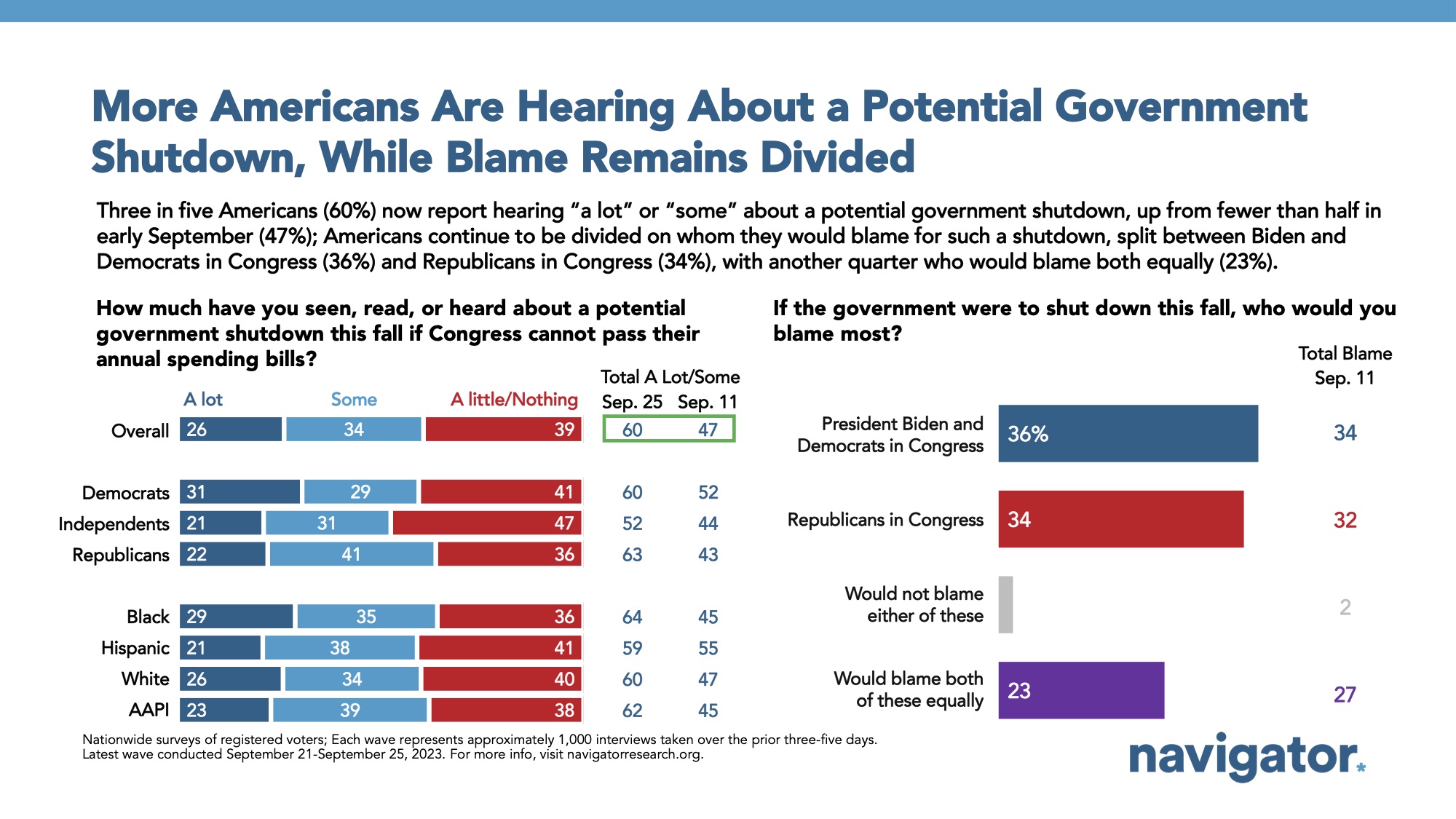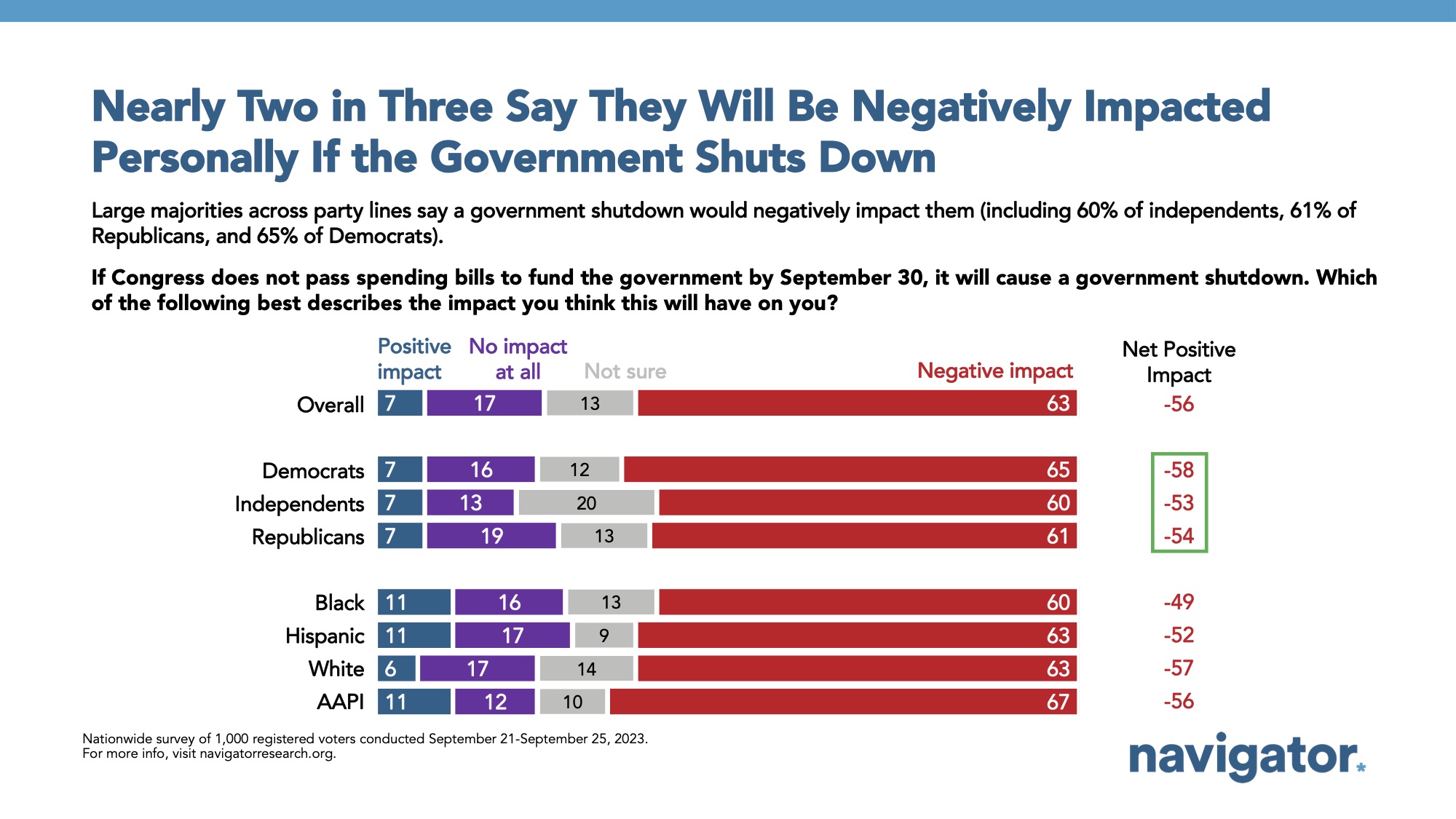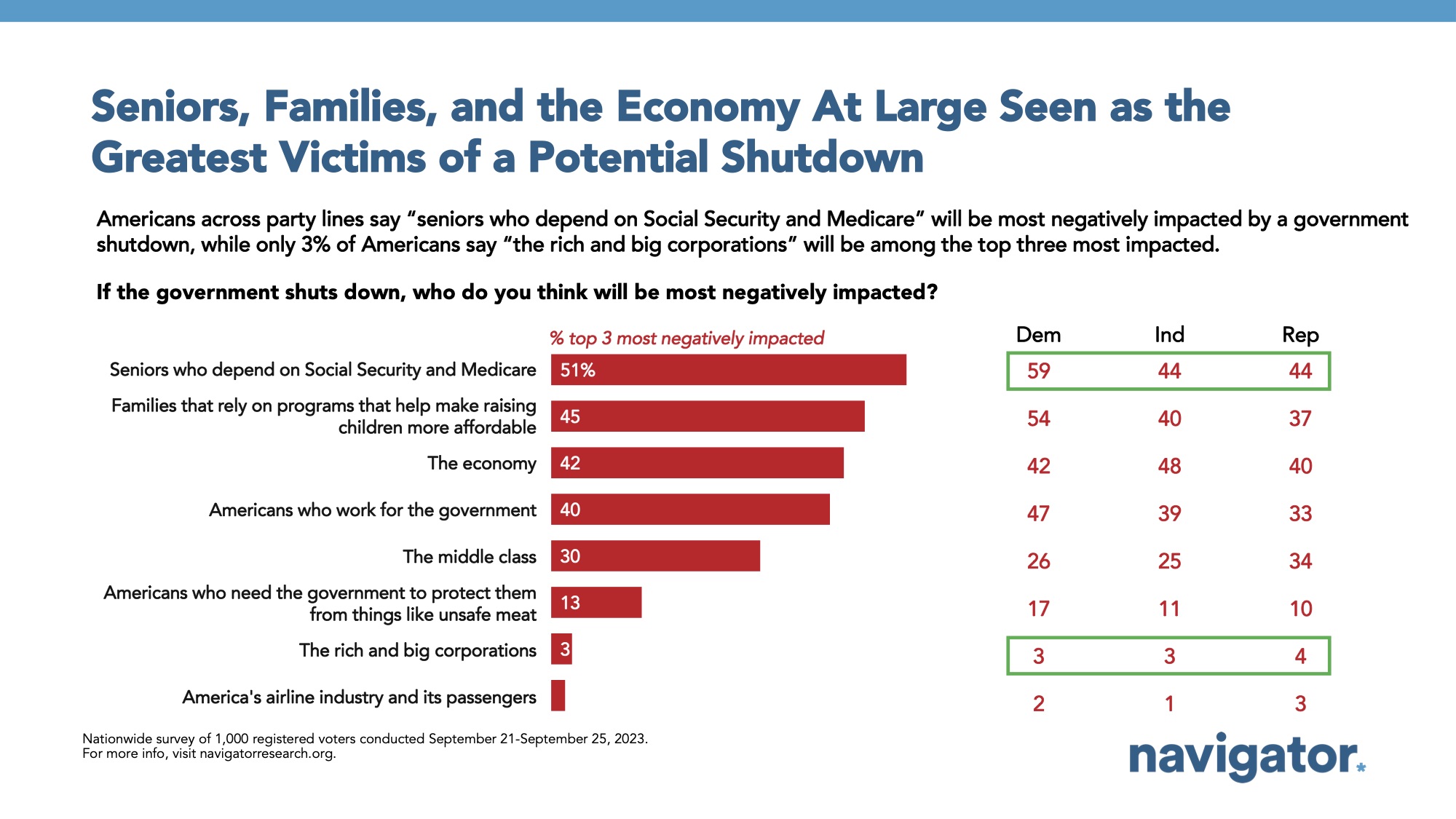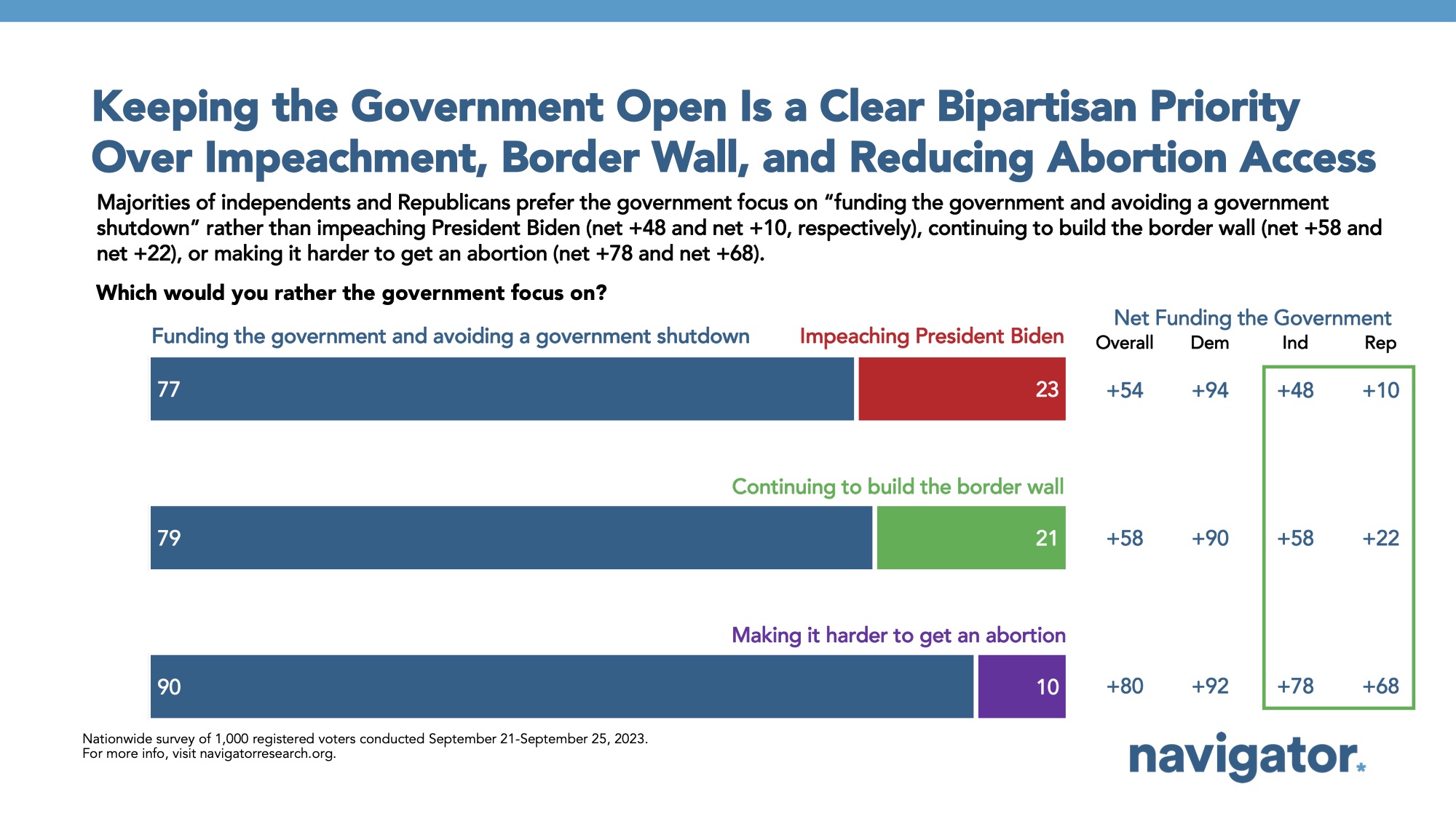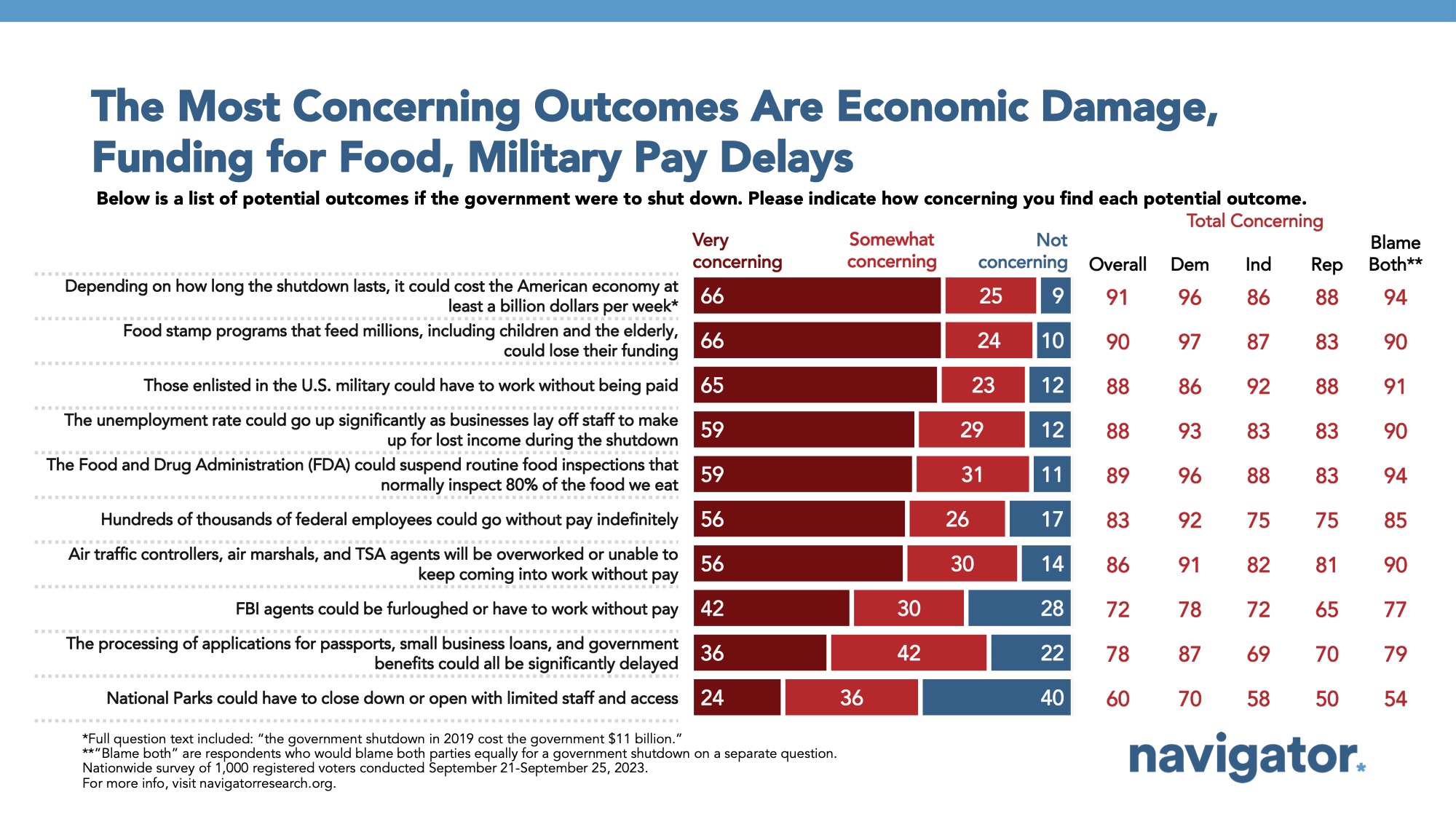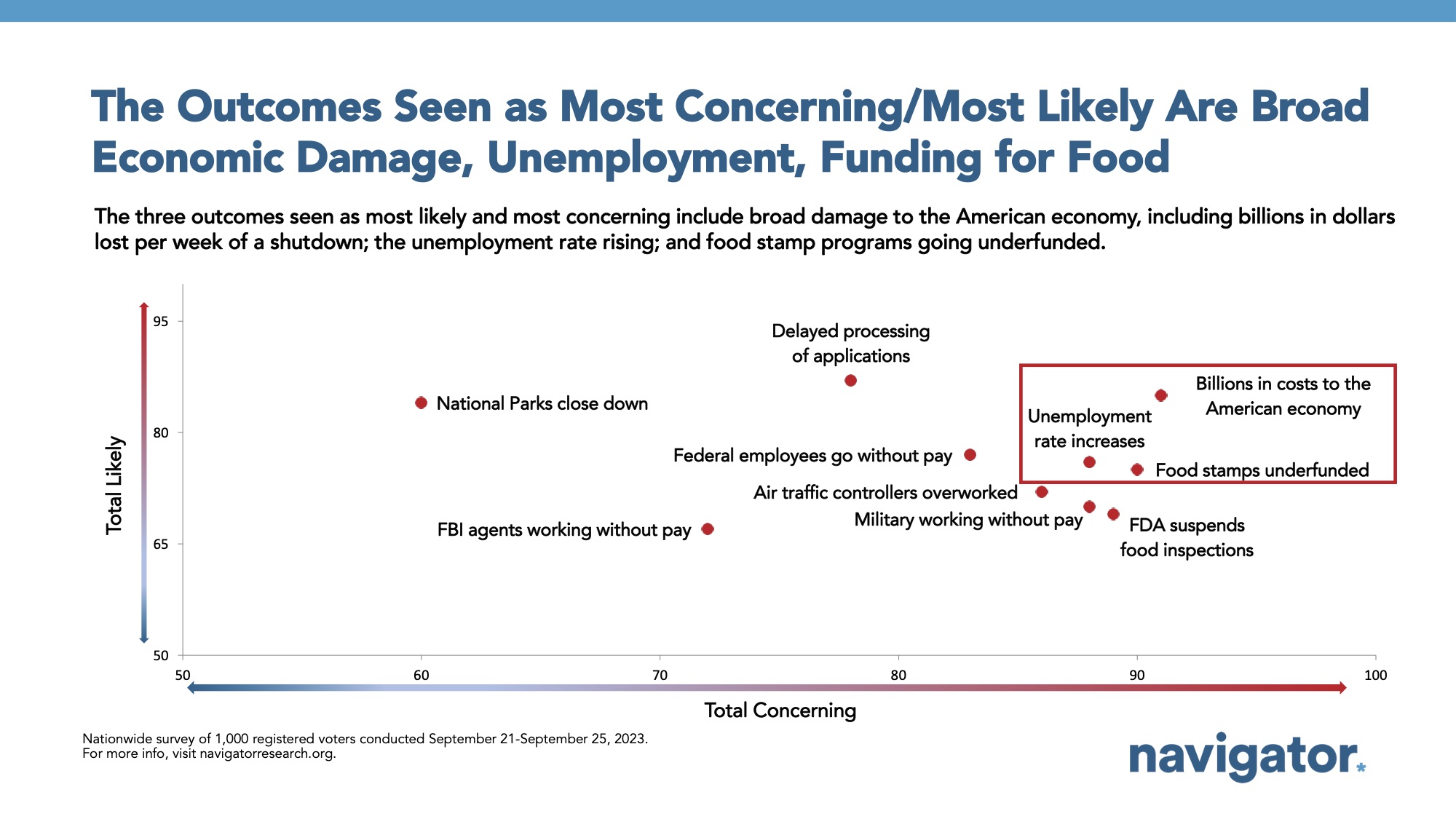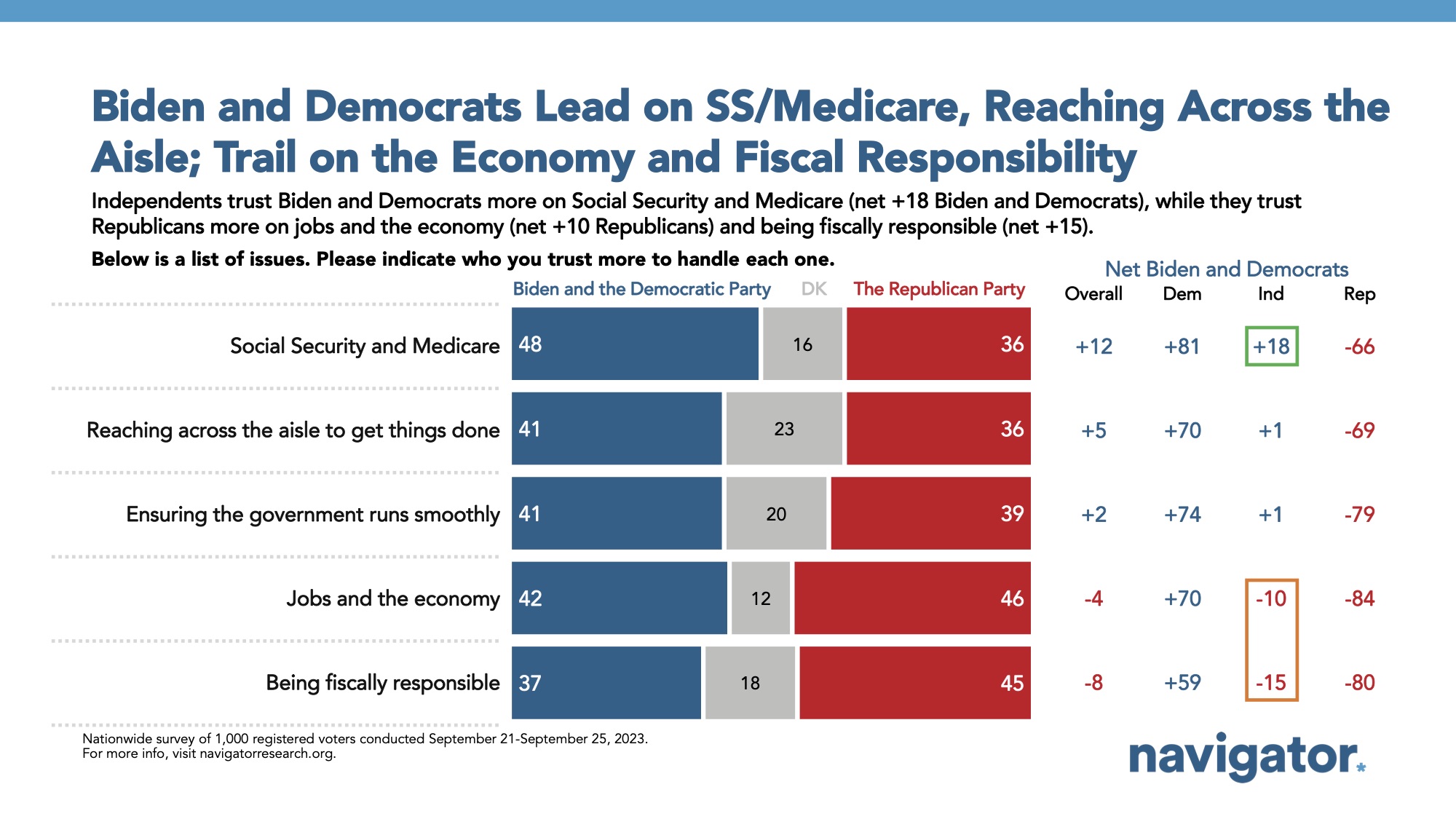Poll: Most Fear Shutdown’s Impact on Social Security, Medicare
This Navigator Research report contains polling data on Americans’ latest perceptions of an impending government shutdown, including who Americans would blame if a shutdown were to occur, how the public weighs Republican policy priorities compared to funding the government to avoid a shutdown, and which outcomes Americans find the most concerning and likely should the government shut down.
Three in five Americans are now hearing about a potential government shutdown.
Three in five Americans report having seen, read, or heard about a potential government shutdown this fall, a significant uptick compared to earlier this month. 60 percent of Americans have reported having heard at minimum something about a potential government shutdown, up by net 13 points from earlier this month (47 percent); one in four are now hearing “a lot” about the shutdown (26 percent), up 15 points in that same time.
- When asked who Americans would blame if a shutdown did occur, Americans split evenly between blaming Biden and Democrats (36 percent) and Republicans (34 percent), with another 23 percent saying they would blame both equally. This is similar to Navigator findings from earlier this month (net +2; 34 percent Biden/Democrats – 32 percent Republicans – 27 percent blame both). However, blaming Biden and Democrats is primarily driven by Republicans (70 percent Biden/Democrats – 4 percent Republicans) while a greater share of independents feel both parties are equally to blame (39 percent blame both – 28 percent Biden/Democrats – 19 percent Republicans).
- Overall, 54 percent of Americans report hearing at least “some” about what elected officials in Washington D.C. are working on. Democrats and independents are most likely to cite the fight over a potential government shutdown as what they are working on, while Republicans are more likely to also cite the impeachment inquiry into President Biden.
By a 56-point margin, Americans overwhelmingly feel a government shutdown will negatively impact their lives.
63 percent of Americans feel a government shutdown would have a negative impact on people like them compared to just 7 percent who think it would have a positive impact. This perception is consistent across partisanship: two in three Democrats (65 percent) and three in five Republicans (61 percent) and independents (60 percent) feel a shutdown would negatively impact their lives.
- If the government shuts down, Americans believe the most negative impacts will fall upon seniors who depend on Social Security and Medicare (51 percent negatively impacted), families that rely on programs that make raising children more affordable (45 percent), the economy (42 percent), and Americans who work for the government (40 percent).
A vast majority want Congress to focus on funding the government and avoiding a shutdown.
An overwhelming majority would rather have the government focus on avoiding a shutdown, as opposed to making it harder to get an abortion, building the border wall, or impeaching Biden. In a set of forced choice questions asking what Americans would rather the government focus on, there is an overwhelming preference to focus on funding the government and avoiding a government shutdown over issues including making it harder to get an abortion (90 percent avoid a government shutdown – 10 percent making it harder to get an abortion), continuing to build a border wall (79 percent avoid a shutdown – 21 percent border wall), or impeaching President Biden (77 percent avoid a shutdown – 23 percent impeach Biden).
- Among Republicans, a majority would rather the government focus on avoiding a shutdown rather than making it harder to get an abortion (84 percent avoid a shutdown – 16 percent make abortion access harder), continuing to build the border wall (61 percent avoid a shutdown – 39 percent continue building border wall), or impeaching Biden (55 percent avoid a shutdown – 45 percent impeach Biden).
The most concerning impacts of a government shutdown are economic costs and delays in benefits, especially for the military.
91 percent of Americans find it concerning that the shutdown could “cost the American economy at least a billion dollars per week: the government shutdown in 2019 cost the government $11 billion,” including 96 percent of Democrats, 88 percent of Republicans, and 86 percent of independents. Further, 85 percent of Americans feel this economic impact to be a likely outcome of a government shutdown. Other concerning outcomes include:
- Food stamp programs that feed millions, including children and the elderly, could lose their funding (90 percent concerning, 75 percent likely);
- The Food and Drug Administration (FDA) could suspend routine food inspections that normally inspect 80% of the food we eat (89 percent concerning, 69 percent likely);
- Those enlisted in the U.S military could have to work without being paid (88 percent concerning, 70 percent likely); and,
- The unemployment rate could go up significantly as businesses lay off staff to make up for lost income during the shutdown (88 percent cornering, 76 percent likely).
Americans are split in whether they trust Democrats or Republicans on a number of dimensions related to the government shutdown debate.
Biden and Democrats are trusted more on issues like Social Security and Medicare (net +12; 48 percent Biden/Democrats – 36 percent Republicans) and reaching across the aisle to get things done (net +5; 41 percent Biden/Democrats – 36 percent Republicans) while Republicans are more trusted on jobs and the economy (net -4; 42 percent Biden/Democrats – 46 percent Republicans) and being fiscally responsible (net -8; 37 percent Biden/Democrats – 45 percent Republicans). However, Americans living in households earning less than $50,000 per year split evenly on which party is more trusted to be fiscally responsible (40 percent Biden/Democrats – 40 percent Republicans). There is also a split overall on whether Biden and Democrats or Republicans are more trusted to ensure the government runs smoothly (net +2; 41 percent Biden/Democrats – 39 percent Republicans).
- Since March of this year, Kevin McCarthy’s net favorability has declined (from net -11 in early May percent to net -21 now; 22 percent favorable – 43 percent unfavorable). This is driven by a net 23-point decline in favorability among Republicans (from net +39 in early May to net +16 now).
About The Study
Global Strategy Group conducted public opinion surveys among a sample of 1,000 registered voters from September 21-September 25, 2023. 105 additional interviews were conducted among Hispanic voters. 75 additional interviews were conducted among Asian American and Pacific Islander voters. 104 additional interviews were conducted among African American voters. 102 additional interviews were conducted among independent voters. The survey was conducted online, recruiting respondents from an opt-in online panel vendor. Respondents were verified against a voter file and special care was taken to ensure the demographic composition of our sample matched that of the national registered voter population across a variety of demographic variables.
